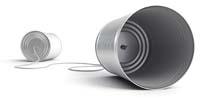Open Science and Society
2009/07/01 Pérez Iglesias, Juan Ignacio - Kultura Zientifikoaren KatedraEHU-BFA Iturria: Elhuyar aldizkaria

This trend has many faces. One is magical thinking, and a close example is the method of times that some use to predict time. On the other hand, there are killings, one of them is astrology, it is not the only one, but it has many followers. Extreme ecological attitudes are contrary to science and technology, so attitudes contrary to research with transformed seeds or living beings do not make sense and are based on prejudices and beliefs. On the other hand, alternative medicines, many, but homeopathy is the most known and widespread. And finally, we have creationism; among us, for the moment, it does not have much strength, but in the United States and in the Islamic peoples its followers have a great influence and, for this reason, it is in danger the teaching of the bases of the biological sciences, with all that it supposes.
In addition, in the field of philosophy and thought, postmodernism and cultural relativism have given intellectual protection to attitudes contrary to rationality. And it is that postmodernism, questioning even the concept of objectivity, has strongly attacked science and evidence-based knowledge.
As can be seen, there are many attitudes against science. Some of them have more importance and influence than others, but they are all dangerous. If one gives credibility to the beliefs, one takes away in the same measure the credibility to the knowledge based on evidence, which can be very harmful, since the tendencies towards distrust and belief in science are fed. These trends can be harmful, as they can have negative consequences for the future material and intellectual well-being of our society.
To put it, I have two reasons. The first refers to the assessment of science. If we place beliefs at the same level of evidence-based knowledge and, in general, question the value of science, we will have no reason to properly value science-based products. And, therefore, why science and technology? Logically, if this is questioned, the incentive of public powers to science and technology will be less, with the consequences that it would entail.
But, as we have said, there is another reason, as important as the first, if not more important. Let's take a look at the time when you can place the origin of science, of course the Century of Lights. It is known that at that time, in addition to creating science, the bases of open and democratic societies were established. In fact, the works of the thinker John Locke, a member of the scientific society Royal Society, influenced the definition of the basic characteristics of the present liberal and democratic states. And it was not a coincidence because the basis of the ideology of open society and scientific knowledge are the same. Both are based on freedom, doubt, tolerance and optimism, with their main enemies being prejudice, intolerance, dogmatism and pessimism.
If attitudes against science prevail, the basis of science will be questioned. And, therefore, if we recognize that the bases of open society are the same as those of science, both will be put into question. In short, if the evidence is not the main criterion for seeking truth, why should we accept, for example, that all individuals are equal and that we must have the same rights? Material goods are not the only ones at stake. When I have said that our future well-being is at stake, I have also included intellectual and political goods. Do not think that this cannot happen. Nowhere is it written that societies must always advance, or that the development of science and knowledge cannot go back.
We must be clear that if the foundations of science are solid, ours will be a more open, democratic and free society. Or put another way: knowledge -- and in this case science -- makes us freer.

Gai honi buruzko eduki gehiago
Elhuyarrek garatutako teknologia




